So you’re in high school AP Calculus, and you know the AP exam is coming up in May. How should you study for it?
What if it’s already the beginning of April, and you haven’t even thought about a practice exam yet?! In this article, we’ll lay out a 1-Month AP Calculus exam study schedule. And along the way, you’ll get some helpful advice about prepping for the exam.
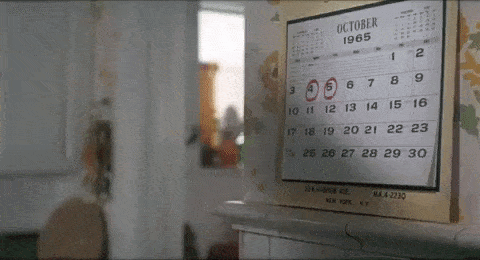
The AP Calculus Exam
The AP exams are not your typical high school exam.
For starters, the AP Calculus AB or BC test has two main sections and takes 3 hours and 15 minutes to complete. Fortunately, there is always a short break between the two sections.

Types of Problems
Section I of the exam consists of 45 multiple choice questions in an hour and 45 minutes. Section II has only 6 free response questions in an hour and a half. However, each free response question has 3 to 4 parts each, and you must show all of your work towards the final answer.
Studying for the Exam
Effective studying consists of a number of different tasks. Some of these you do as part of your coursework during the year. Other parts you will do on your own before the AP exam.
- Learning the concepts
- Drilling basic skills
- Doing practice tests
- Reviewing weak spots
Learning the Concepts
This is what your course work is all about. As you read through the textbook and listen to lectures in class each day, you are learning what calculus is all about. Pay attention to all of the examples. Try to understand every theorem and property.
It takes time, but this is the most important part of the process. You can only build upon a solid foundation.
Drilling Basic Skills
Your teacher probably assigns a ton of homework. The purpose is not to ruin your weekend plans, but rather to give you enough practice to hone your skills. The more homework you do, the easier the material will become!
Practice truly does make perfect.
Doing Practice Tests
I cannot stress enough the importance of practice exams.
Get a good AP Calculus prep book (either AB or BC, depending on which test you plan to take). If that book has less than 4 practice exams in it, buy an additional book from a different publisher.
You should strive to do at least 3, but ideally 4 or 5 practice exams before the real thing. This is why you should have started prepping earlier in the year!

Reviewing Weak Spots
The purpose of doing practice exams is not to give you busy work to keep you occupied before test day. Instead, you should use each practice exam as a diagnostic tool to discover your weak areas.
Let’s say you breezed through every limit and derivative problem on the practice test. However integrals caused you great anxiety, and you were basically guessing at those. In that case, you know that integrals should be your top priority for intense study.
Use your AP Calculus textbook as a resource. Let’s say you forgot how to integrate trig functions. Leaf through your book and find that topic. Then work out some exercises at the end of the section. Often, a textbook will have the answers to odd-numbered problems in the back so that you can check your understanding.
Hopefully, the next time you sit down for a practice test, those integral problems will be much easier to do.
The Content of the Exams
The material tested on the AP Calculus AB exam is the equivalent of roughly one semester of college Calculus. On the other hand, the AP Calculus BC exam covers two full semesters.
Basically, the BC test covers everything that the AB does but in more depth, and it covers new material not found in a first-semester calculus curriculum.
Three or Four Big Ideas
The AP Calculus AB exam content is broken up into three Big Ideas,
- Limits
- Differential Calculus
- Integral Calculus
For a detailed list of topics see What Topics are on the AP Calculus AB Exam?
The AP Calculus BC exam covers one additional Big Idea, Sequences and Series.
- Limits (including L’Hospital’s Rule)
- Differential Calculus (including vector, parametric, and polar derivatives)
- Integral Calculus (including vector, parametric, and polar integrals)
- Sequences and Series
More information about the BC topics can be found here: What Topics are on the AP Calculus BC Exam?
1-Month AP Calculus Exam Schedule
While I normally recommend to prep for the test at least three months in advance, this shorter schedule is effective if you have only four and a half weeks to prepare.
| Week | Test | Review |
|---|---|---|
| Week 1 | Practice Test 1 | Limits |
| Week 2 | Practice Test 2 | Differentiation |
| Week 3 | Practice Test 3 | Integration |
| Week 4 | Practice Test 4 | Sequences/Series (BC) or All Topics (AB) |
| Week 5 | AP Calculus Exam Week! |
Basically, each week you will take a practice exam and then use the rest of the week to focus on your weak spots from one of the Big Ideas.
What works for many students is to take each practice test on Sunday. Then use the weeknights to review. Saturday can be also be a study day or it can be more flexible.
Don’t take another practice test on the last Sunday before test day. Instead, use that week to review all of the topics one by one. Keep in mind, the exam may occur a Tuesday (as it does in 2017).
Practice, Practice, Practice!
If you follow the above 1-month schedule, then you will do a practice exam every week leading up to the real deal. While at first that may seem like a ton of work (and it is; there’s no question about that!), it’s important to do those practice tests in order to succeed on the AP exam itself.
Check out this helpful article for more explanation concerning practice tests: How many Practice Problems should I do to Prep for my AP Calculus Exam?
Final Thoughts
The main idea is that you must prepare for your AP Calculus exam far in advance of the actual test. Cramming the night before will do no good.
This post serves as a 1-month AP Calculus Study Guide, however if you can spread the prep time out over two or three months, then that would be even better.
Good luck on the exam!!!

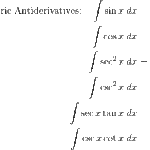
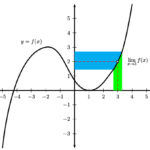
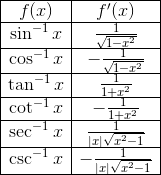
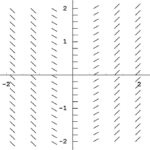
Leave a Reply